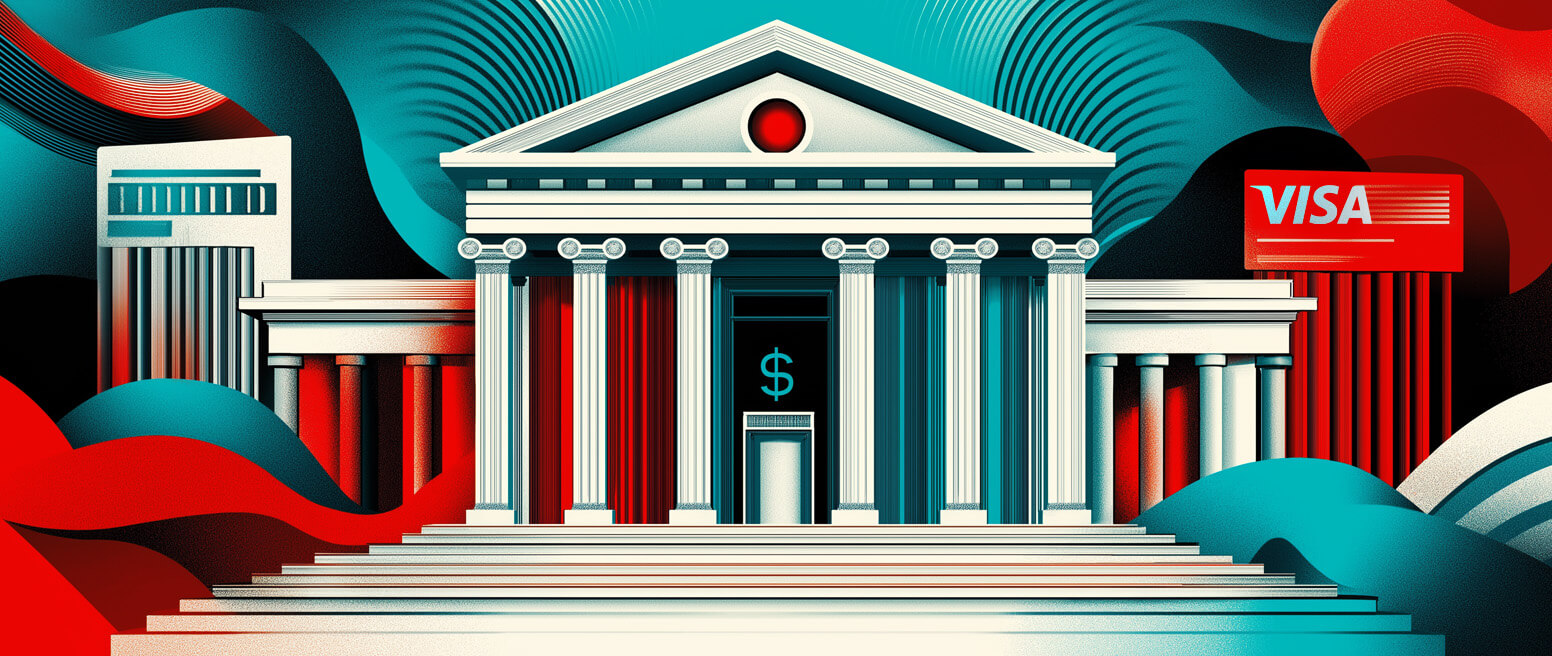Here’s What You Should Know About Pre-Arbs & the Visa Arbitration for Disputes
Cardholder disputes can often feel like an “us vs. them” scenario.
Okay, so maybe chargebacks aren’t quite Law & Order. But, you can think of a chargeback as being like litigation, in some regards. First, you have the two sides: you and the cardholder. Your representative (the acquirer), and the customer’s representative (the issuer) are also involved. When a dispute arises, these two parties try to hash out a resolution that works for everyone. Think of this like an attempt at “settling out of court.”
What if they can’t see eye-to-eye, though? Well, that’s when you call in an arbitrator. By which, I mean the card network, who will make an impartial decision based on the facts.
In this post, we’ll try to demystify that last stage in the chargeback process, and explore how it works on the Visa network. We’ll explain the Visa chargeback arbitration process, and provide some strategies to navigate potential disputes.
Recommended reading
- Visa Acquirer Monitoring Program: Major Visa Updates in 2025
- Visa Chargeback Rules: Your “A-to-Z” Guide for Visa Disputes
- Visa Chargeback Time Limits: The 2025 Guide
- Verifi Order Insight: Using Data to Block Visa Disputes
- Rapid Dispute Resolution: Avoiding Chargebacks With RDR
- Visa Authorization Rules: Changes to Time Frames & Options
What is Visa Arbitration?
Visa arbitration is where the card network is asked to step in and decide a dispute claim that the stakeholders were unable to resolve.
The final stage of the Visa dispute process is called arbitration. It happens when the parties involved — the banks, the cardholder, and the merchant — have tried to resolve a dispute but could not come to terms. Now, they’re asking the card network to intervene.
Remember, Visa is not a bank or a “credit card company;” they’re a card network. The company licenses card issuing rights, then provides the technology and infrastructure that allows member banks to process credit card payments. Theoretically, that means they can serve as a neutral, unbiased arbiter.
When a claim is escalated to arbitration, a Visa representative will examine all the evidence and make a final, impartial judgment. In most cases, that’s the end of the dispute process. The losing party can appeal Visa’s decision, but it’s costly: as of this writing, the fee for appealing a Visa arbitration is $1,000.
Visa no longer uses the term “chargeback” in an official capacity. Instead, they call customer cases “disputes.”
Visa Pre-Arbitration & Workflows: How Did We Get Here?
Visa arbitration is preceded by representment, which involves representing the original transaction with evidence that shows it was legitimate, and pre-arbitration, which is a post-representment response from the bank. The process may differ, depending on the claim in question.
The step before Visa chargeback arbitration is appropriately called a “pre-arbitration,” or a “pre-arb.” A pre-arb is like a post-representment message from the bank, rejecting your chargeback response. At that point, Visa allows pre-arbitration cases, assuming the cardholder can provide further evidence to back their claim.
Once the new evidence is received and reviewed by the issuer, something might be discovered that could alter the bank’s original decision. For example, the reason code issued for the pre-arb may need to be changed. Perhaps the original dispute was unauthorized, then turned into “Goods/Services Not Received.”
Whatever the case, if the issuer submits a pre-arb, you and your bank have only two options: accept the dispute, or enter arbitration.
Visa Arbitration Process: The Allocation Workflow
There are two different workflows a dispute can take to get to Visa arbitration, depending on the claim made by the cardholder.
For cases that involve either fraud or authorization-related claims, responsibility is assigned automatically according to established rules. Visa assesses the complaint data, decides whether it constitutes a valid dispute, and makes a decision.
If the bank rules in favor of the cardholder, then you have pretty limited options to challenge the decision. Certain conditions apply, and Visa only allows a 30-day timeframe (individual acquirers typically set even tighter deadlines).
Visa calls this the pre-arbitration phase, but it consists of what would traditionally be considered representment and (if they rejected the representment ruling) the pre-arbitration response. It looks something like this:
Visa Arbitration Process: The Collaboration Workflow
Visa chargebacks that stem from either consumer complaints or processing errors are resolved through the Collaboration track. As the name implies, Visa’s Collaboration workflow is designed to encourage all the involved parties to work together to resolve the claim without Visa's direct involvement.
Here, the process is more similar to that used by Mastercard:
Can Merchants Win a Visa Arbitration Case?
It’s possible for a merchant to win a Visa arbitration, but the process is expensive and the odds of success are slim. Because of this, arbitration should only be attempted in certain situations.
Yes... but the odds are not really in your favor.
Winning a dispute is never guaranteed. Confusion, mistakes, and missed deadlines are all endemic problems. Winning won’t be easy if a dispute gets escalated to Visa arbitration, even if you do everything to the best of your ability.
Card networks usually default to the most expedient solution. And, in the interest of protecting consumers, they might err on the side of cardholders.
Plus, you probably already used all the evidence at your disposal to overturn the original chargeback. Without additional, strong evidence, your chance of winning gets even more narrow.
When Should Merchants Engage in Visa Arbitration?
Visa arbitration should only be considered in situations where the cost of arbitration is considerably less than the original transaction amount. Even then, merchants should be very sure their evidence will support their case.
Let’s be real: it’s not financially advantageous to take disputes through arbitration in most cases. Additional dispute arbitration fees apply. And, they can be pretty steep.
As of this writing, Visa charges a $500 filing fee for any cases ruled in favor of the cardholder. And, like we mentioned above, there will be a $1,000 fee if you want to appeal that decision. Visa can also set a $250 penalty if it finds a merchant violated any of Visa's Merchant Agreement rules. This is in addition to any chargeback fees already assessed.
| Fee Description | Assessed Amount |
| Filing fee, if case is found in cardholder’s favor | $500 USD |
| Appeal fee, to ask for Visa to reconsider ruling | $1,000 USD |
| Discretionary penalty for Visa rules noncompliance | $250 USD |
All that being said, there are situations where pursuing arbitration may be worth it. You may want to engage in Visa chargeback arbitration if the dispute involves a substantial amount of money.
A $20,000 chargeback, for example, may justify the risk of facing a filing fee. So, if the potential liability from losing the case is significant enough, then it may be worth it to take on the additional fees and pursue arbitration.
But, another important consideration is the impact on customer relationships. Going through arbitration could damage your relationship if the dispute involves a loyal or repeat customer. In these situations, it may be better to work towards an amicable solution with the cardholder, rather than escalate the issue to arbitration.
Next, think about your case. You need to be confident that you have strong evidence to support the disputed charge. You have to weigh the potential financial implications against the likelihood of winning the case. It may also be helpful to seek guidance from a professional dispute resolution service, or even legal counsel, depending on the situation.
Ultimately, you should evaluate each arbitration decision on a case-by-case basis. So, always carefully consider your options — and what is at stake — before pursuing this option.
What is the Time Limit for an Arbitration Response?
Of course, this 10-day time frame also encompasses the time it takes your acquirer to notify you, review your documentation, and submit your response. In practical terms, you’ll likely have a week or less to assemble your case.
Missing the deadline will lead to a default judgment against you. You’ll automatically lose the case, with no chance to present your side of the story to Visa. That’s why it’s imperative to implement a filing system that makes it possible to gather all necessary information and documentation quickly.
Preventing Visa Arbitration
Due to the high cost and statistically slim chance of success, merchants should focus on preventing disputes from happening.
The representment process is expensive and time-consuming from start to finish. Plus, the odds of winning a dispute arbitration case are slim.
You’re dealing with constantly evolving rules and regulations, contrasting policies between card network, and ever-changing terminology. Fighting for yourself can be daunting, at best. That’s why the best option is to avoid the arbitration process altogether. This calls for a strategic plan to prevent chargebacks.
In addition to helping win chargeback representments, Chargebacks911® has an experience-backed reputation for creating customized chargeback management solutions. We guide merchants through all phases of the chargeback process so they can focus on business growth and sustainability.
Want to learn more about ensuring ROI through representment? Have other questions about avoiding pre-arbitration chargebacks? Click below to speak with one of our chargeback experts.
FAQs
How does Visa arbitration work?
Visa arbitration is a formal dispute resolution process that occurs when a chargeback cannot be resolved through representment or negotiations between the cardholder and the merchant. In this stage, the case is presented to Visa, which reviews the evidence and makes a final decision that is binding for both parties, often leading to significant financial implications for the merchant.
How much does Visa arbitration cost?
The cost of Visa arbitration can vary depending on several factors, including the specifics of the dispute and the associated fees charged by Visa. Visa charges a $500 filing fee for any cases ruled in favor of the cardholder. Visa can also set a $250 penalty if it finds a merchant violated any of Visa's Merchant Agreement rules.
How long does arbitration take with Visa?
The duration of arbitration with Visa can vary widely depending on the complexity of the case and the responsiveness of the involved parties. Generally, the process can take anywhere from a few weeks to several months, as Visa reviews the submitted evidence and renders a decision.
What are the odds of winning in arbitration?
Visa does not publish these numbers. But, the odds of winning in arbitration largely depend on the strength of the evidence presented and how well it aligns with Visa's policies and guidelines. Merchants who have thorough documentation and a solid understanding of the dispute context typically have a better chance of a favorable outcome.
Is it worth going to arbitration?
Deciding whether to pursue arbitration with Visa largely depends on the specifics of the case and the evidence available. If the merchant believes they have a strong position supported by thorough documentation, it may be worthwhile to initiate arbitration to potentially overturn an unfavorable chargeback decision.
What happens if you win in arbitration?
If a merchant wins in arbitration with Visa, the decision typically results in the reversal of the chargeback, allowing the merchant to retain the funds that were initially disputed. Additionally, winning may strengthen the merchant's position in future disputes by establishing a precedent of favorable outcomes based on the presented evidence.
















